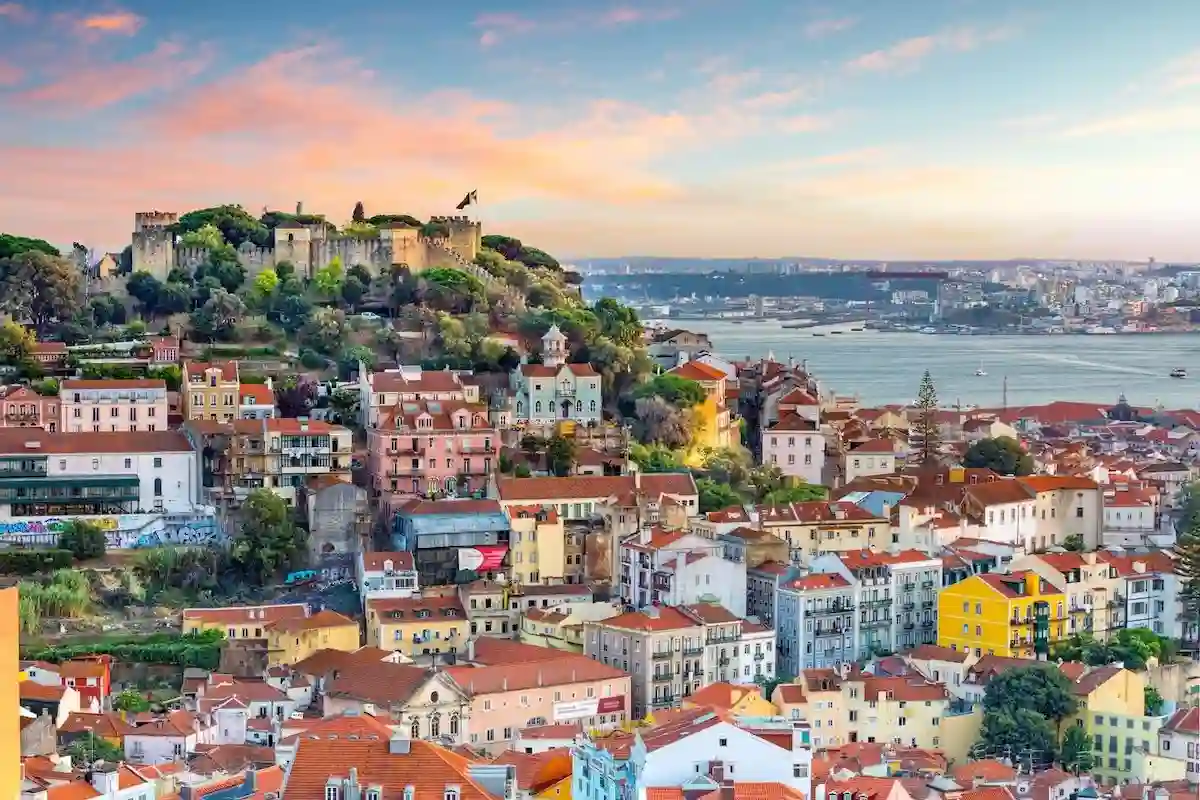Why Are So Many People Moving to Portugal?
In recent years, Portugal has become a top destination for expats, retirees, digital nomads, and families looking for a fresh start in Europe. The country continues to attract people from around the world, with thousands making the move annually. But what’s driving this trend? Is it the sunny beaches, the affordable lifestyle, or something deeper? Having explored Europe extensively, I’ve seen why Portugal stands out as a place to live, work, and thrive. From its fantastic climate to its welcoming policies, Portugal offers a unique blend of benefits that make it hard to resist. In this guide, I’ll break down the reasons behind Portugal’s popularity, the realities of moving here, and everything you need to know to make your move a success. Let’s dive into why so many people are calling Portugal home!
The Benefits of Moving to Portugal
Portugal’s appeal lies in its combination of practical advantages and lifestyle perks. Here’s why so many are packing their bags for this sunny corner of Europe.
Lower Cost of Living
One of Portugal’s biggest draws is its affordability compared to other Western European countries. While costs have risen in recent years, especially in popular areas, Portugal remains budget-friendly. A couple can live comfortably in most cities on €2,000–€2,500 per month, including rent, groceries, and utilities. For example, a coffee costs around €1–€1.50, and a meal at a local restaurant is typically €8–€15. Housing varies by region—a one-bedroom apartment in Lisbon’s city center averages €900–€1,200 per month, but in smaller cities like Coimbra or Braga, you’ll pay €400–€700. Compared to cities like London or Paris, where rent can easily exceed €2,000, Portugal offers a much more manageable cost of living, making it ideal for retirees, remote workers, and anyone looking to stretch their budget.
Fantastic Climate
Portugal’s climate is a major reason people move here. The country enjoys a Mediterranean climate with mild winters and warm summers. In the south, like the Algarve, you’ll get over 300 days of sunshine annually, with winter temperatures rarely dropping below 15°C and summers reaching 30°C. The north, including Porto, is cooler and rainier in winter (10–15°C), but summers are still pleasant at 25–28°C. Madeira and the Azores offer subtropical climates, with temperatures averaging 20–25°C year-round. Whether you’re after endless beach days or mild winters for outdoor activities, Portugal’s weather delivers, making it a haven for sun-seekers and nature lovers.
Safety & Stability
Portugal is one of the safest countries in the world, ranking 7th on the 2024 Global Peace Index. Violent crime is rare, and petty crime like pickpocketing is mostly limited to tourist areas in Lisbon and Porto. The country’s political stability adds to its appeal—Portugal has a long-standing democracy with a low risk of unrest. For families, retirees, and solo travelers, this sense of security is a huge draw. You can walk the streets at night, let your kids play in parks, and feel at ease in your new home, which is a stark contrast to some other parts of the world where safety concerns are more pressing.
Excellent Healthcare
Portugal’s healthcare system is another reason people choose to move here. The public healthcare system (Serviço Nacional de Saúde, or SNS) is accessible to all residents, offering free or low-cost care. Once you’re a resident, you can register with the SNS and get a health number to access services. The quality of care is high, with well-trained doctors and modern facilities, especially in urban areas. However, waiting times for non-urgent procedures can be long, so many expats opt for private health insurance, which costs €30–€50 per month and provides faster access to specialists and English-speaking doctors. Portugal also ranks highly for healthcare outcomes—life expectancy is 81 years, above the EU average, making it a great choice for retirees or those with medical needs.
Visa-Friendly Policies
Portugal is known for its welcoming immigration policies, making it easier for non-EU citizens to move here. The D7 Visa, for those with passive income (like pensions or investments), requires a minimum of €820 per month for the main applicant (as of 2025). The Digital Nomad Visa, launched in 2022, is perfect for remote workers, requiring a monthly income of €3,280. The Golden Visa, though less popular now due to changes in 2023, still allows residency through investments like cultural donations starting at €250,000. EU citizens can move freely with just a passport, and after five years of residency, you can apply for permanent residency or citizenship. These options make Portugal accessible to a wide range of people, from retirees to young professionals.
A Slower, Better Life
Perhaps the biggest draw is the lifestyle Portugal offers. Life here moves at a slower pace, encouraging you to savor the moment. The Portuguese value family, community, and leisure—lunch breaks often stretch to two hours, and weekends are for relaxing with loved ones. Whether you’re enjoying a pastel de nata at a local café, strolling along the beach, or attending a village festival, Portugal fosters a sense of balance and well-being. For many expats, this slower, more intentional way of living is a refreshing change from the hustle of cities like London, New York, or Toronto. It’s a place where you can truly live, not just exist.
The Realities: Challenges of Moving to Portugal
While Portugal has plenty of benefits, it’s not without its challenges. Here’s what to expect so you can prepare for your move.
Bureaucracy
Portugal is notorious for its bureaucracy, which can be a headache for newcomers. Tasks like getting a tax number (NIF), registering your residency, or setting up utilities often involve long waits, multiple appointments, and lots of paperwork. For example, you might need to visit the local tax office (Finanças) in person to get your NIF, and booking an appointment with the immigration service (SEF, now AIMA) can take weeks. Many expats hire a local lawyer or relocation specialist to navigate the process, which can cost €500–€1,000 but saves time and stress. Patience is key—bring a book to appointments and be prepared for delays.
Language Barriers
English is widely spoken in tourist areas and expat hubs like Lisbon, the Algarve, and Cascais, but in smaller towns or rural areas, Portuguese dominates. While the Portuguese are generally friendly and willing to help, not knowing the language can make daily tasks—like dealing with utility companies or chatting with neighbors—more difficult. Learning basic Portuguese before you move will go a long way. Start with phrases like “Bom dia” (good morning) or “Quanto custa?” (how much does it cost?). Apps like Duolingo or local language classes can help, and once you’re here, practicing with locals will boost your confidence.
Rising Cost of Housing
While Portugal is still affordable, housing costs have risen in recent years, especially in popular areas. Lisbon and Porto have seen significant increases due to demand from expats and tourists. In Lisbon, a one-bedroom apartment in the city center now averages €900–€1,200 per month, up from €700–€900 a few years ago. The Algarve and Cascais are also pricier due to their appeal to retirees and remote workers. Smaller cities like Coimbra or Évora offer better value (€400–€600 per month), but even there, prices are creeping up. If you’re on a budget, consider renting in less touristy neighborhoods or exploring rural areas, where you can find charming homes for much less.
Low Local Wages
If you plan to work in Portugal, be aware that local wages are relatively low compared to other Western European countries. The minimum wage in 2025 is €820 per month, and average salaries for jobs like teaching or hospitality range from €1,000–€1,500 per month. While this might be enough to live on given the lower cost of living, it can feel limiting if you’re used to higher earnings elsewhere. Many expats work remotely for international companies or start their own businesses to maintain a higher income while enjoying Portugal’s lifestyle.
Tax Complexity
Portugal’s tax system can be complex for expats. The Non-Habitual Resident (NHR) program, which offered a 10-year tax break on foreign income, ended in 2024, though a new regime offers a 20% flat tax rate on certain income for qualifying professionals (like doctors or engineers). Regular income tax rates are progressive, ranging from 14.5% to 48%, depending on your earnings. You’ll also need to navigate social security contributions and potential double taxation if you have income from your home country. Hiring a local accountant familiar with expat taxes (costing around €200–€500 per year) can help you avoid surprises and ensure compliance.
Check out our post on Solo Travel Guide To Portugal.
Residency and Visa Options
Portugal offers several pathways for non-EU citizens to move here, alongside easy access for EU citizens. Here’s a quick overview:
- EU/EEA/Swiss Citizens: If you’re from the EU, EEA, or Switzerland, you can move to Portugal with just your ID or passport. You’ll need to register your residency with the local council after three months and apply for a residence certificate (€15 fee). After five years, you can apply for permanent residency.
- D7 Visa (Passive Income): For non-EU citizens with passive income (e.g., pensions, rentals, investments), the D7 requires a minimum income of €820 per month for the main applicant, plus 50% for a spouse and 30% per child. You’ll need to show proof of income, health insurance, and a rental agreement or property purchase.
- Digital Nomad Visa: Launched in 2022, this visa is for remote workers earning at least €3,280 per month (four times the Portuguese minimum wage). You’ll need to provide proof of employment, income, and health insurance. It’s valid for one year, renewable for up to five years, after which you can apply for permanent residency.
- Golden Visa: This investment-based visa requires a minimum investment, such as €250,000 in cultural heritage or €500,000 in a business. Real estate investments are no longer eligible as of 2023. It grants residency for the whole family and requires minimal stays (7 days in the first year, 14 days in subsequent two-year periods).
- Citizenship Path: After five years of legal residency, you can apply for permanent residency or citizenship. Citizenship requires basic Portuguese language skills (A2 level) and a clean criminal record. Portugal allows dual citizenship, so you won’t need to renounce your original nationality.
For the latest visa requirements, check with the Portuguese embassy or the AIMA website.
Cost of Living Breakdown (Lisbon Example)
To give you a clearer picture, here’s a monthly cost of living breakdown for a couple living in Lisbon’s city center in 2025:
- Rent (1-bedroom apartment, city center): €1,000
- Utilities (electricity, water, internet): €120
- Groceries (for two): €300
- Dining Out (4 meals at €12 each): €48
- Public Transport (monthly passes for two): €80
- Private Health Insurance (for two): €80
- Entertainment (movies, events, etc.): €50
- Miscellaneous (clothing, household items): €100
- Total: €1,778
This budget allows for a comfortable lifestyle with some room for savings or travel. Costs will be lower in smaller cities like Coimbra (€1,200–€1,500 for a couple) or higher in luxury areas like Cascais (€2,000–€2,500).
Where to Live in Portugal
Portugal’s diverse regions offer something for every lifestyle. Here’s a quick recap of popular spots (I’ve covered these in more detail in my previous guide):
- Lisbon: The vibrant capital, perfect for urban enthusiasts, young professionals, and families. Expect a dynamic social scene, international schools, and a higher cost of living (€900–€1,200/month for a 1-bedroom).
- Porto: A cultural hub in the north with a slower pace, ideal for digital nomads and retirees. It’s more affordable (€600–€900/month) and offers a rich arts scene.
- The Algarve: A sunny retreat in the south, great for retirees and beach lovers. Towns like Lagos and Faro are expat-friendly (€500–€800/month).
- Coimbra: A budget-friendly, historic city in central Portugal, suited for retirees and students (€400–€600/month).
- Cascais: A luxurious coastal town near Lisbon, ideal for families and professionals (€800–€1,100/month).
- Madeira: An island paradise for nature lovers and remote workers, with a mild climate (€500–€700/month in Funchal).
- Évora: A historic gem in the Alentejo, perfect for a quiet, traditional lifestyle (€400–€600/month).
- Braga: A spiritual northern city with low costs, great for retirees (€450–€700/month).
- Aveiro: A charming small town with canals, ideal for a peaceful life (€450–€650/month).
Working in Portugal
If you plan to work in Portugal, there are a few things to know. EU citizens can work freely, but non-EU citizens will need a work visa or residency permit that allows employment (like the Digital Nomad Visa). The job market is strongest in Lisbon and Porto, particularly in tech, tourism, and hospitality. Tech startups are growing, with roles for developers, marketers, and designers, while tourism offers jobs in hotels, restaurants, and tour companies.
However, local wages are low—averaging €1,000–€1,500 per month for mid-level jobs. English teaching is popular among expats, with salaries of €800–€1,200 per month. Many expats work remotely for international companies, which allows them to earn higher salaries (e.g., €3,000–€5,000/month) while enjoying Portugal’s lower cost of living. Freelancers and entrepreneurs can also thrive, thanks to coworking spaces in Lisbon and Porto, though you’ll need to register as self-employed and pay social security contributions (around 21% of your income).
Healthcare in Portugal
As mentioned earlier, Portugal’s healthcare system is a major draw. The public SNS provides free or low-cost care to residents, covering doctor visits, hospital stays, and some medications (with small co-pays, e.g., €5 for a GP visit). To access it, register at your local health center with your residence permit and get a health number. The quality of care is good, especially in cities, but waiting times for specialists can be months-long, and English-speaking doctors aren’t guaranteed in public hospitals.
Private healthcare is a popular alternative, with shorter wait times and more English-speaking staff. A private doctor visit costs €40–€80, and insurance plans start at €30–€50 per month per person. Many expats use a combination of both systems—public for emergencies and private for routine care. If you have specific medical needs, research hospitals in your chosen city; Lisbon and Porto have the best facilities, like Hospital de Santa Maria and Centro Hospitalar Universitário de São João.
Education in Portugal
Portugal offers good education options, making it a viable choice for families. Public schools are free for residents and teach in Portuguese, with a curriculum that includes math, science, history, and languages (English is often taught from an early age). However, the language barrier can be challenging for expat kids, so many families opt for international schools, especially in Lisbon, Porto, and the Algarve.
International schools teach in English and follow curriculums like the IB or British system. Examples include St. Julian’s School in Carcavelos (near Lisbon), the Oporto British School, and the International School of the Algarve. Tuition ranges from €10,000–€20,000 per year, depending on the school and grade level. Some schools offer scholarships or sibling discounts, so it’s worth inquiring. If you’re considering public schools, enrolling your child in Portuguese language classes beforehand can help them adjust.
Bringing Pets to Portugal
Moving with pets to Portugal is straightforward, especially for EU citizens. Non-EU citizens will need to follow a few steps to ensure a smooth process:
- Microchip and Vaccinations: Your pet must have a microchip and an up-to-date rabies vaccination (at least 21 days before travel).
- Pet Passport or Health Certificate: EU pets need a pet passport; non-EU pets require a health certificate issued by a vet within 10 days of travel.
- Travel Requirements: If flying, check airline policies—most allow small pets in the cabin for a fee (€50–€100), while larger pets travel in cargo. TAP Air Portugal, the national airline, is pet-friendly.
- Registration in Portugal: Once you arrive, register your pet with the local vet and get a Portuguese pet passport (€15–€30). Some municipalities require annual licensing (around €10).
Portugal is a pet-friendly country—dogs are welcome in many parks, beaches (outside peak season), and even some cafes. The Algarve and Madeira have plenty of open spaces for pets to roam, while cities like Lisbon and Porto have dog parks and pet stores aplenty.
Cultural Differences
Adapting to Portuguese culture can take some adjustment, but it’s part of the adventure. Here are a few differences to expect:
- Slower Pace: The Portuguese take their time, whether it’s enjoying a meal or handling bureaucracy. Don’t expect the same urgency as in fast-paced cities like New York or London—embrace the slower rhythm.
- Meal Times: Lunch is the main meal, often lasting 1–2 hours, and dinner is late, typically around 8–9 PM. Restaurants may not open for dinner until 7 PM, so plan accordingly.
- Personal Space: The Portuguese are warm and friendly, often greeting with two kisses on the cheek (even for casual acquaintances). They’re also more tactile than some cultures, so don’t be surprised by a friendly pat on the arm.
- Family-Centric: Family is central to Portuguese life. Sundays are often spent with relatives, and public holidays like Christmas are major family events. As an expat, you might be invited to join these gatherings—say yes for a true cultural experience!
- Language Nuances: Portuguese people are polite and indirect. If you need help, phrase requests courteously, like “Could you please help me?” rather than “I need this now.”
Embracing these differences will help you integrate and build meaningful connections with locals.
Frequently Asked Questions (FAQ)
Is Portugal a good place to retire?
Yes! Portugal’s low cost of living, excellent healthcare, safety, and sunny climate make it a top retirement destination. The Algarve, Cascais, and Madeira are particularly popular for retirees, offering expat communities and a relaxed lifestyle.
Can I move to Portugal if I don’t speak Portuguese?
Yes, especially in expat hubs like Lisbon, Porto, and the Algarve, where English is widely spoken. However, learning basic Portuguese will make daily life easier and help you connect with locals, especially in smaller towns.
How much money do I need to move to Portugal?
It depends on your visa and lifestyle. For a D7 Visa, you need at least €820/month in passive income. A couple can live comfortably on €2,000–€2,500/month in most cities, though Lisbon and Cascais are pricier. Factor in moving costs, visa fees (€75–€170), and initial setup (e.g., first month’s rent and deposit).
Is it easy to find a job in Portugal?
It can be challenging due to low local wages and competition. EU citizens have an easier time, but non-EU citizens need a work visa. Remote work for international companies or freelancing is a popular option for expats.
What’s the best city in Portugal for families?
Lisbon and Cascais are great for families, with international schools, parks, and family-friendly activities. The Algarve is also popular for its safe, relaxed environment and outdoor lifestyle.
Final Thoughts
Portugal’s popularity as a relocation destination is no mystery—it offers a rare combination of affordability, safety, and quality of life that’s hard to find elsewhere in Europe. From the sunny beaches of the Algarve to the cultural streets of Porto, the country has something for everyone, whether you’re a retiree seeking tranquility, a digital nomad chasing flexibility, or a family looking for a fresh start. Yes, there are challenges like bureaucracy and rising housing costs, but with preparation, these are manageable hurdles on the path to a better life.
As someone who’s explored Europe for years, I can say Portugal has a special magic. It’s a place where you can slow down, soak in the sun, and build a life that feels meaningful. Whether you’re dreaming of Lisbon’s vibrant energy or Madeira’s peaceful trails, your Portuguese adventure is waiting. Have you decided to make the move? I’d love to hear your plans or answer any questions in the comments—let’s chat about your journey to Portugal!






0 Comments